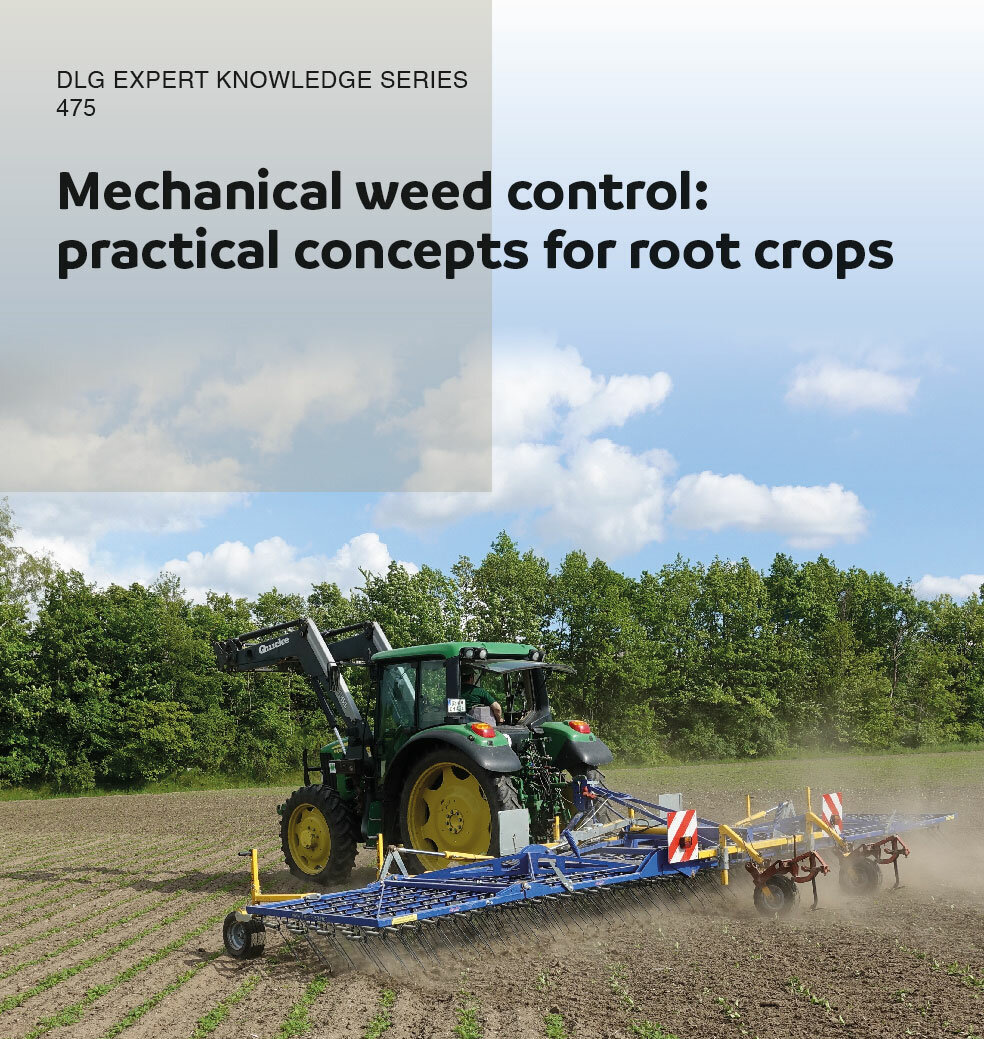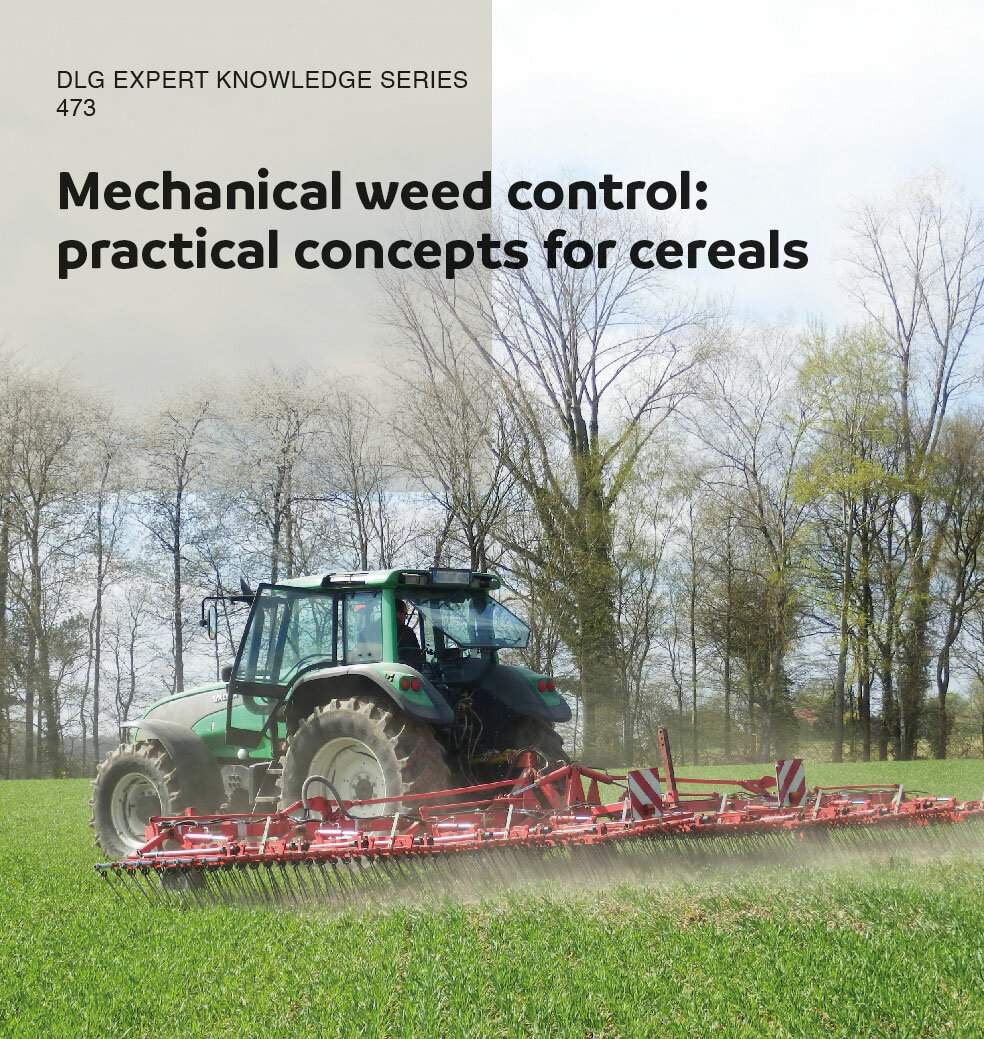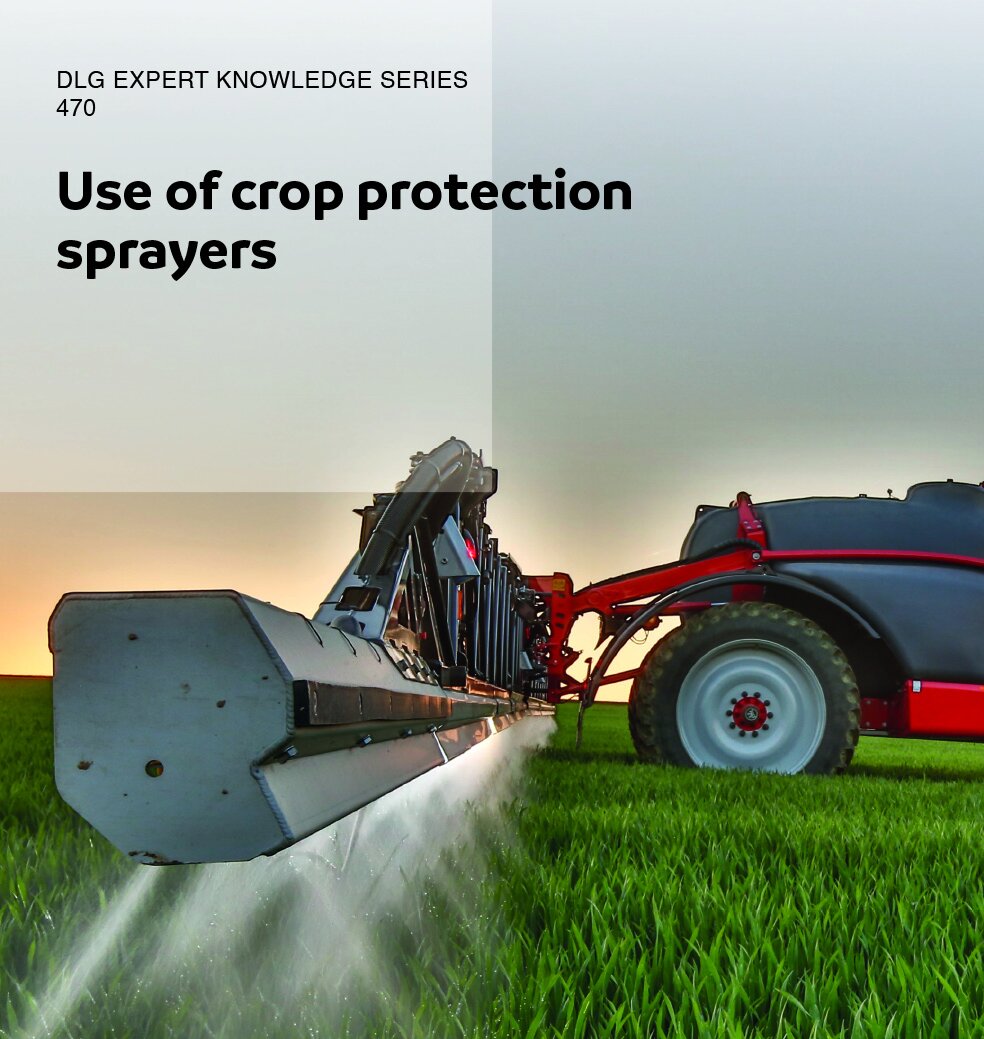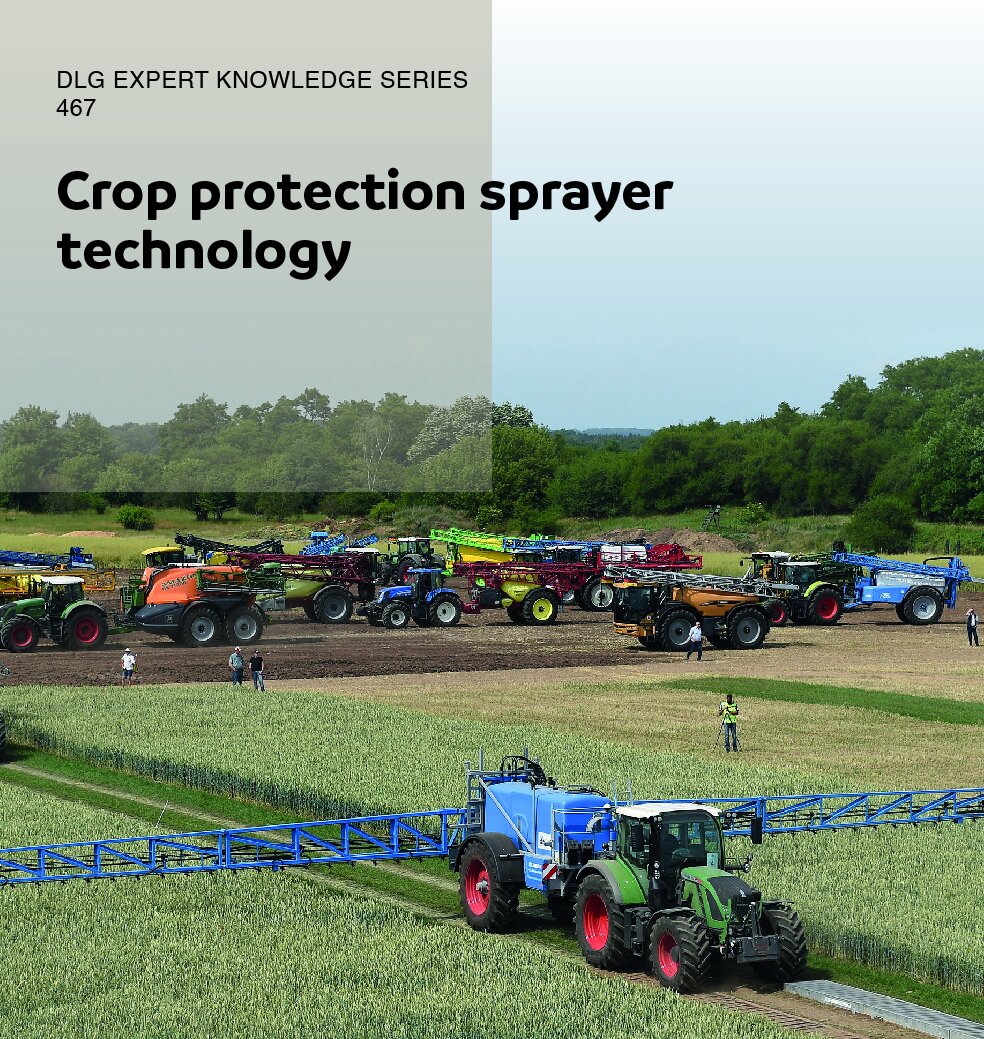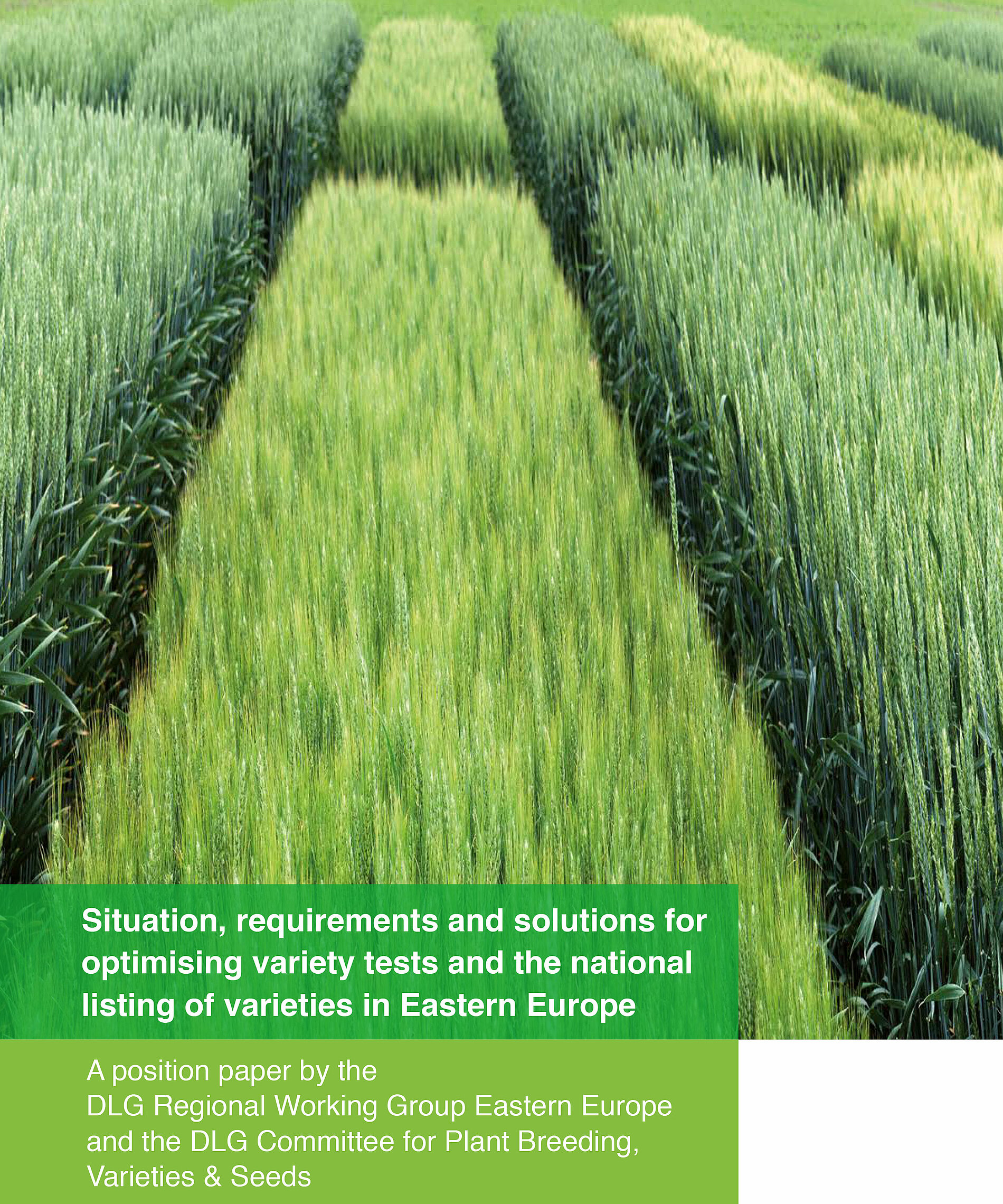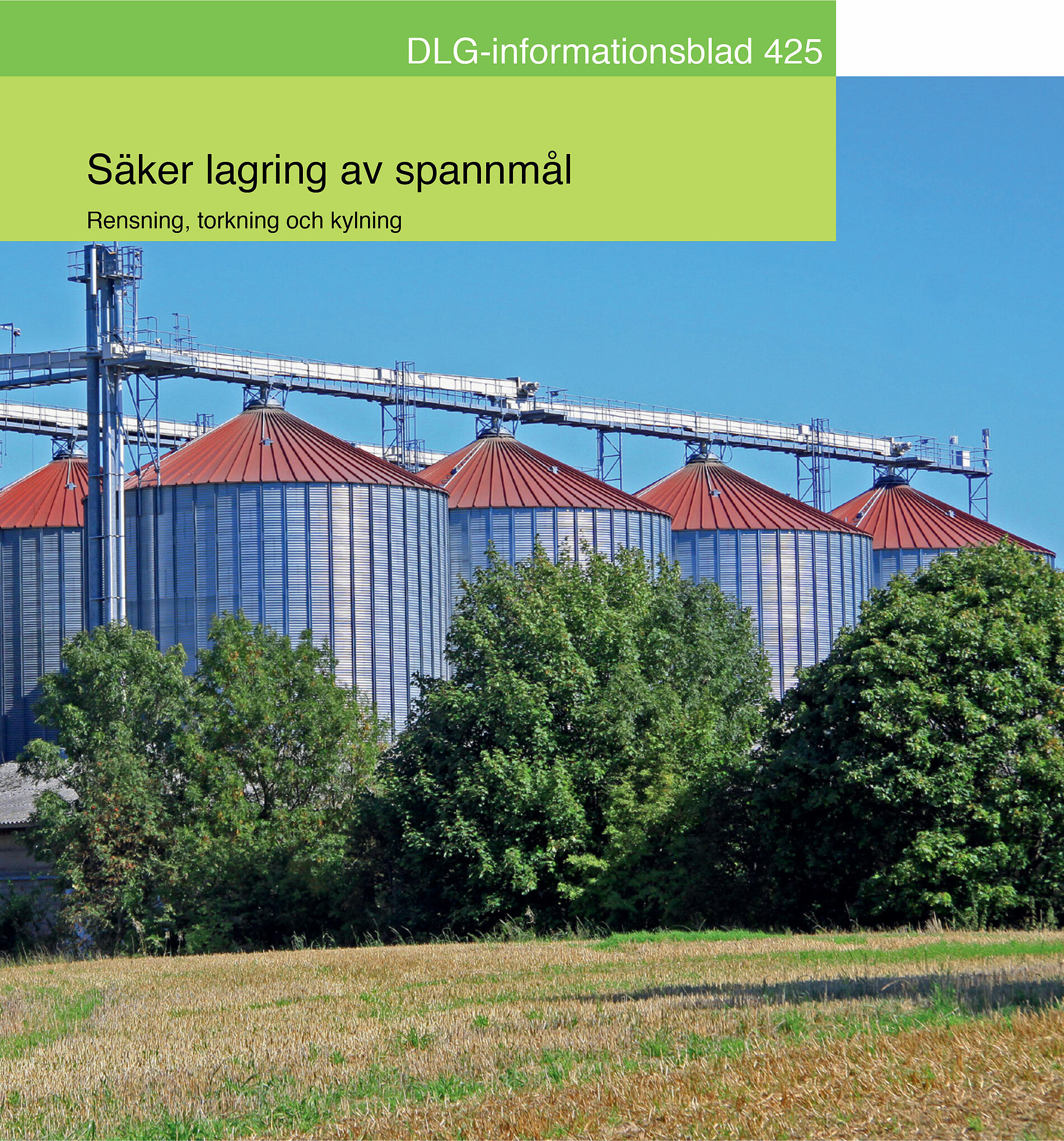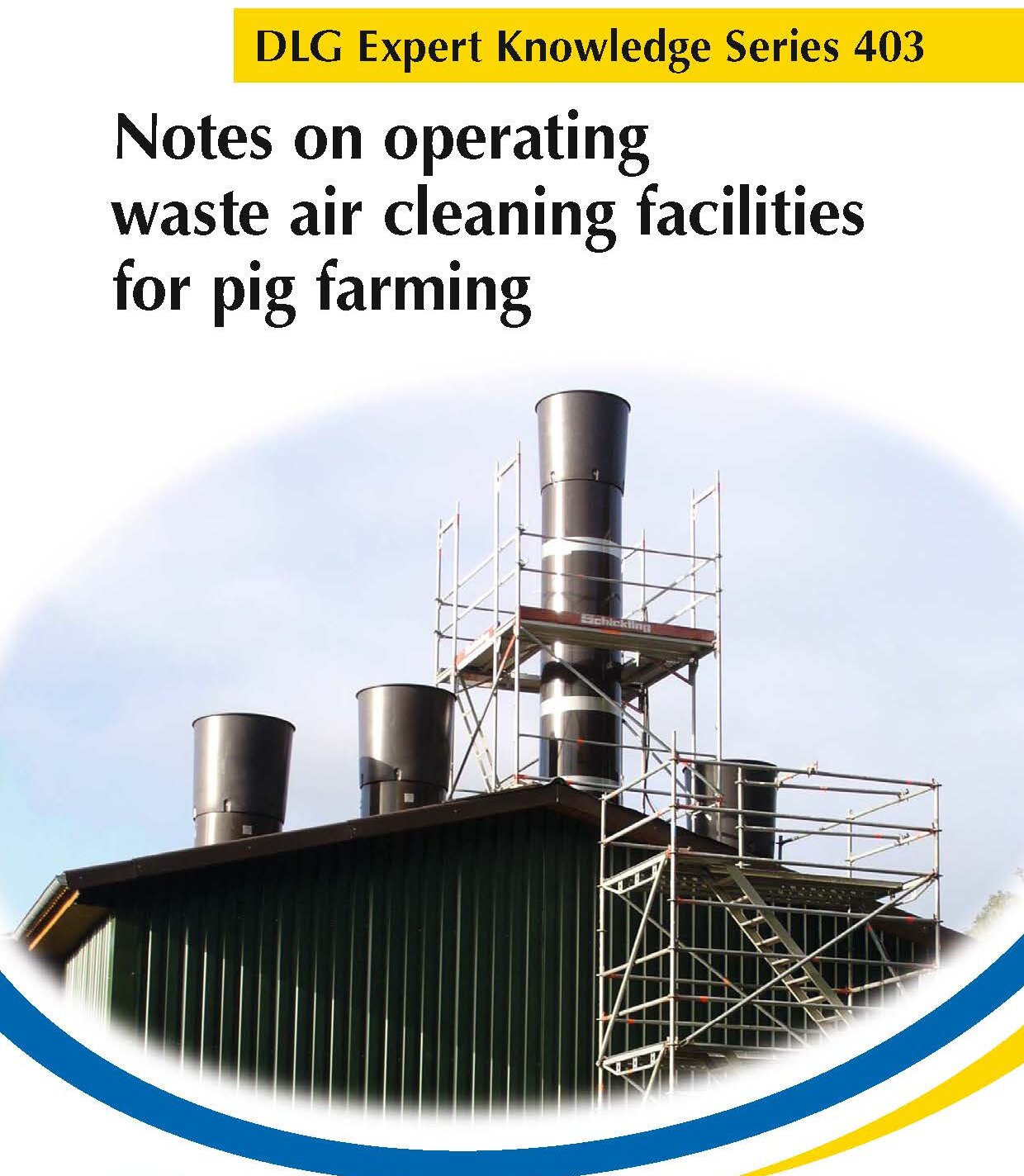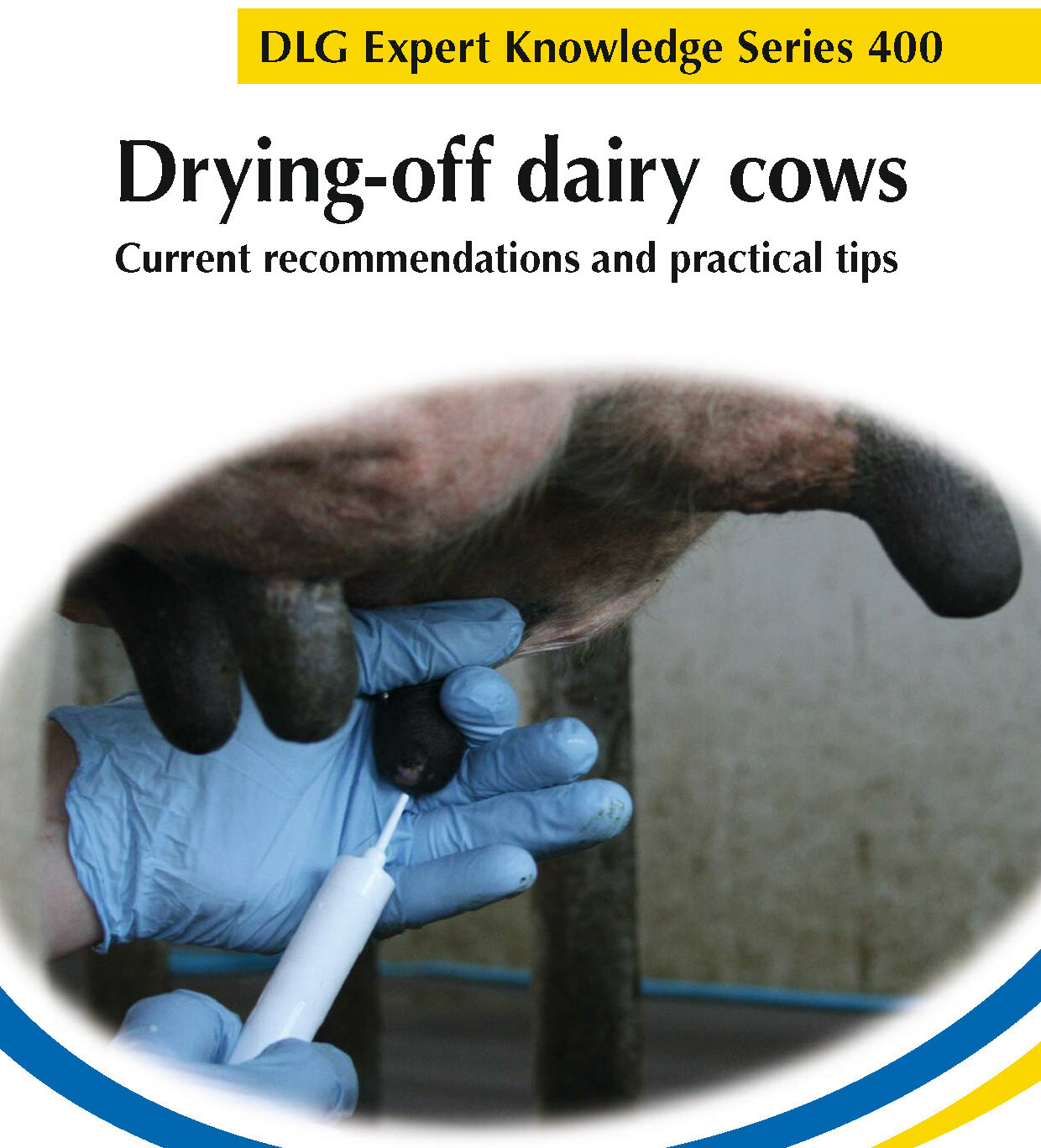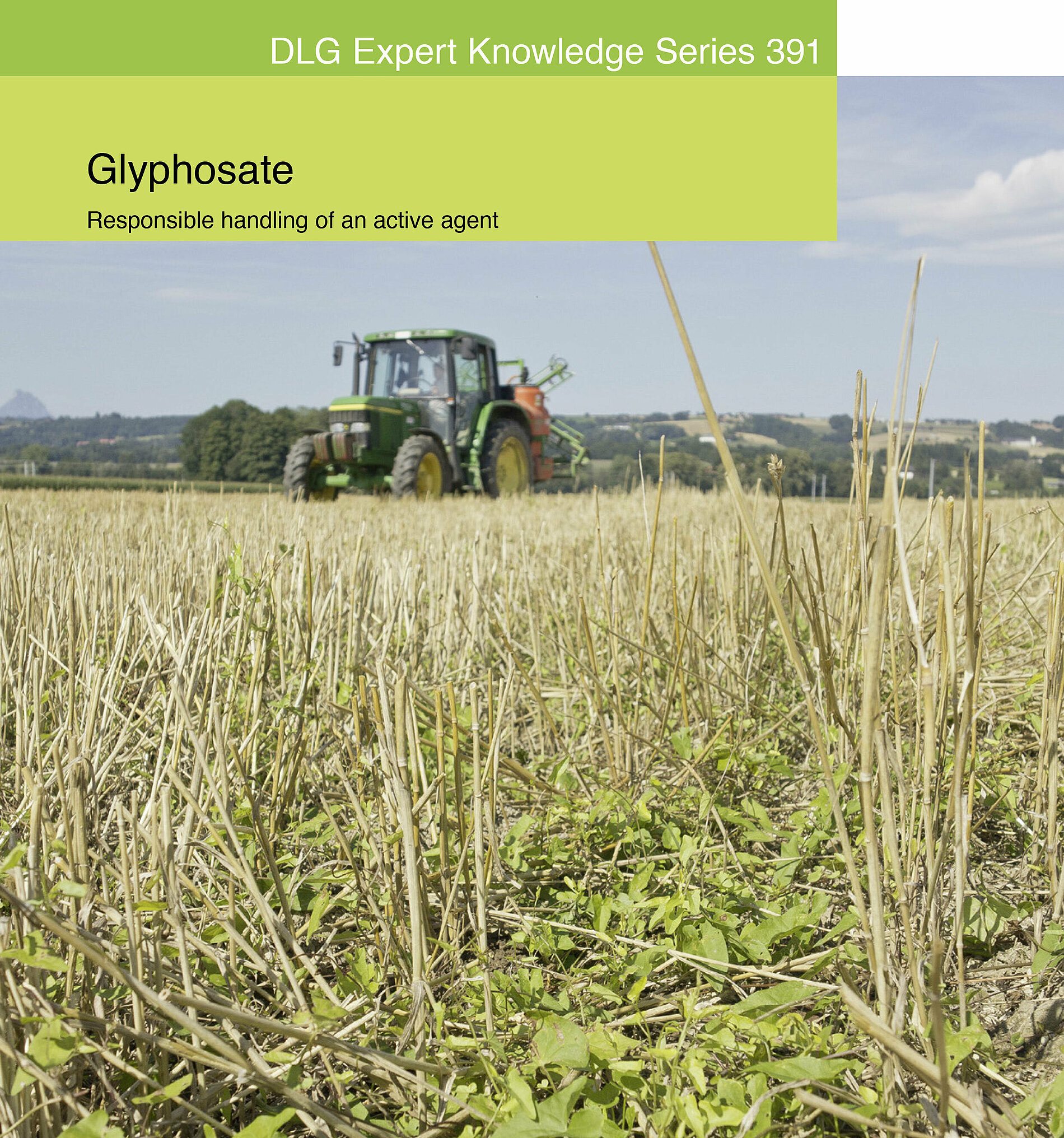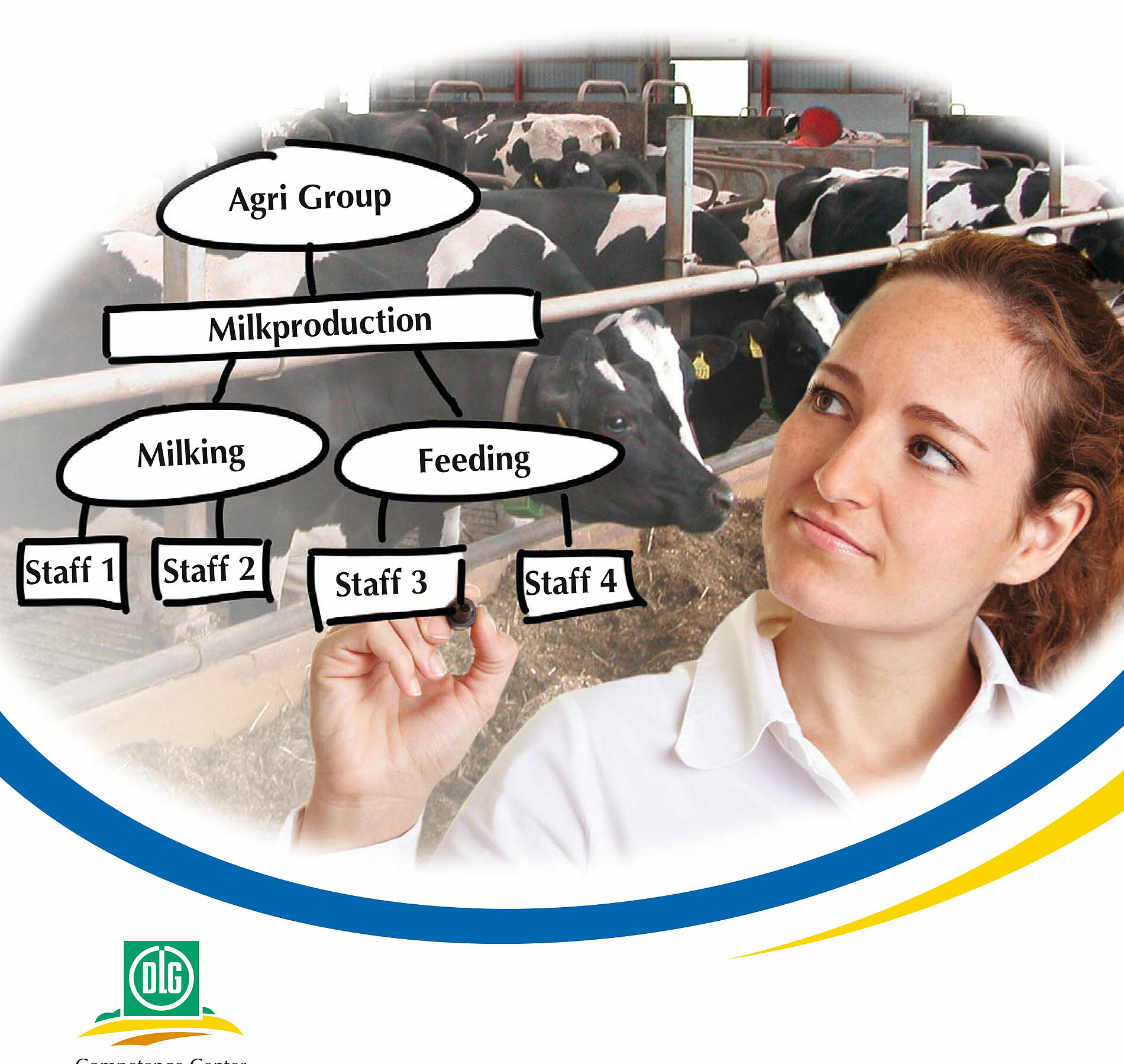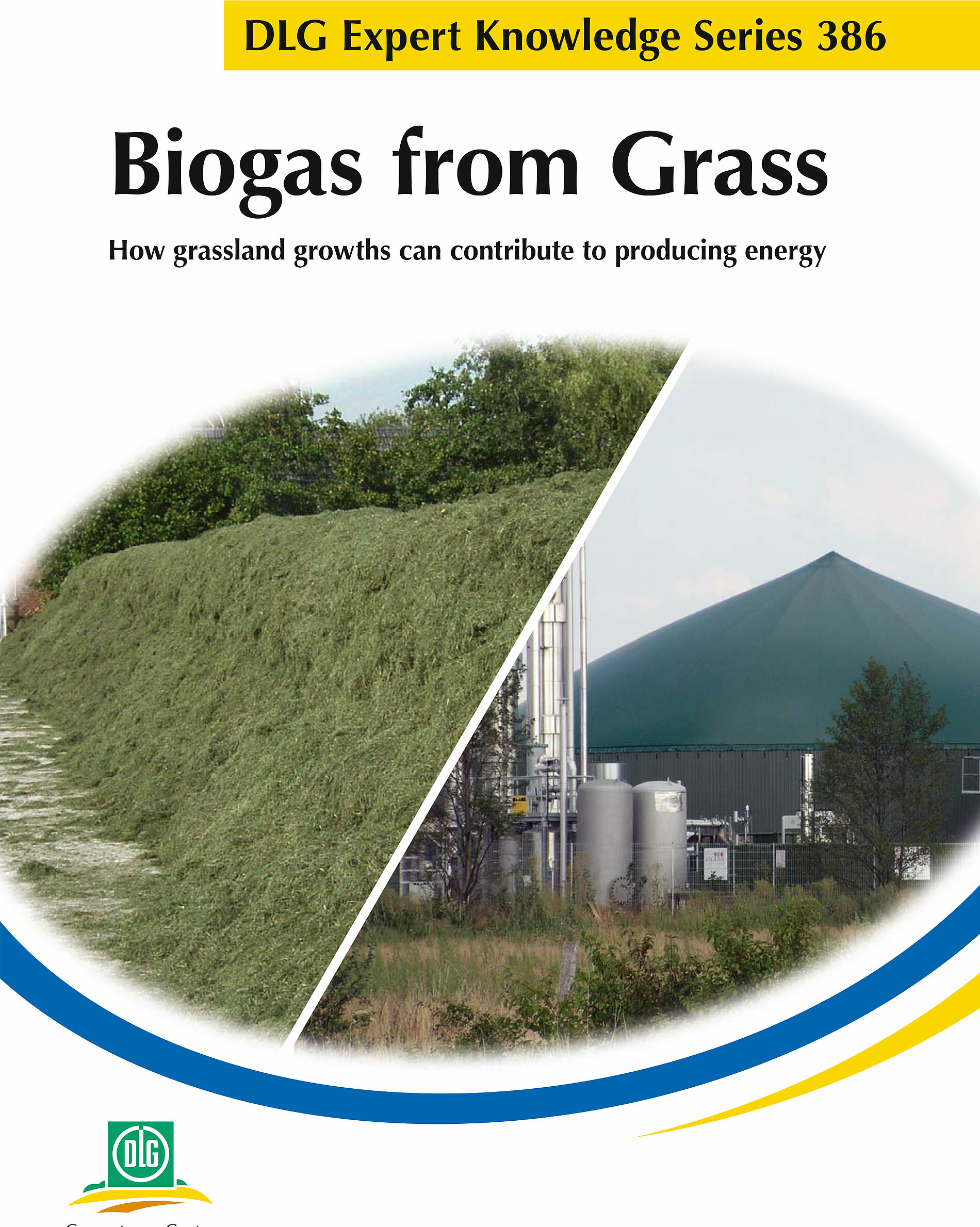DLG Expert Knowledge
Mechanical weed control: practical concepts for root crops
DLG Expert Knowledge Series 475
In this Expert Knowledge Series pamphlet ‘Mechanical weed control – practical concepts for root crops’, consultants show which aspects need to be focused on when developing an operational strategy, and experienced farmers provide an insight into the concepts used in their locations.
Mechanical weed control: practical concepts for cereals
DLG Expert Knowledge Series 473
Mechanical weed control is a central element of successful crop growing in organic farming. And interest in mechanical weed control as an additional element of crop protection is increasing in conventional farming due to the increasing resistance of weeds to chemical active substances and because of the decline in the number of active substances that can be used.
In this Expert Knowledge Series pamphlet ‘Mechanical weed control – practical concepts for cereals’, consultants show which aspects need to be focused on when developing an operational strategy, and experienced farmers provide an insight into the concepts used in their locations.
Use of crop protection sprayers
DLG Expert Knowledge Series 470
This Expert Knowledge Series pamphlet is focused on notes, recommendations and information concerning the use of crop protection sprayers.
Crop protection sprayer technology
DLG Expert Knowledge Series 467
This Expert Knowledge Series pamphlet deals in detail with the technical options for the environmentally-friendly application of liquid crop protection agents in arable farming. Bearing the scope of the Expert Knowledge Series pamphlet in mind, only conventional crop protection sprayers are dealt with, not air blast sprayers, atomisers, wiper implements or special designs.
Avoidance of heat stress in dairy cows
DLG Expert Knowledge Series 450
Due to their high milk yield, dairy cows often have the problem that they are unable to output their related body heat to their environment sufficiently during the summer months. All preventative building and technical options that are possible with justifiable conversion effort in the existing cow shed should be exploited to prevent stress situations from arising at high ambient temperatures. These include all measures that increase natural air exchange, increase the air velocity at the animal to a tolerable level and ensure reduced heat input into the cow shed.
The objective of this Expert Knowledge Series pamphlet is therefore to describe preventative measures as well as further techniques for avoiding heat stress in existing cow shed systems and to provide decision-making assistance.
Situation, requirements and solutions for optimising variety tests and the national listing of varieties in Eastern Europe
Position paper Eastern Europe
This position paper is aimed at farmers, particularly those interested in developing the on-farm variety test network, plant breeders, variety test sponsors, agricultural policy makers and financial backers of public-private partnership projects.
Storing grain safely - Cleaning, drying and cooling (Russian and Swedish Version)
Expert Knowledge Series 425
Grain is a very sensitive foodstuff. The quality and quantity losses due to incorrect storage are correspondingly high. DLG Expert Knowledge Series 425 describes not only the risk factors encountered in storage, but also measures such as cleaning, drying, airing and cooling. These serve to achieve sound storage stability and thus to avoid vitality and germinability of the stored grain.
Initially the Expert Knowledge Series leaflet is only available in Russian, Swedish and German.
Harvesting crops – Handling properly – Adding values
DLG compact 1-2019
Food losses are still a major concern for farmers, wholesalers, merchants, food processors, transporters and consumers. Everybody plays a role, either to prevent food loss or to suffer from it.
This document points out some of relevant technical and management measures. In addition, this briefing provides both, examples of how to operate storage systems and a check-list for individual use.
Correct crop protection – things to check before you start
Expert Knowledge Series 409
The concept of integrated crop protection has become the key strategy for practical crop protection on a global scale. This means that growers need to pursue a holistic approach and take preventive measures while considering chemical use as their last resort and limiting inputs to the necessary minimum. To this end, eight general guidelines were added to the existing Crop Protection Act in February 2012.
Sow group formation
Expert Knowledge Series 408
Looking beyond the theoretical principles of social behaviour in pigs and animal welfare requirements, this edition of the Expert Knowledge Series provides recommendations as to the best way to group house sows on the farm, with practical examples to illustrate possible solutions.
Notes on operating waste air cleaning facilities for pig farming
Expert Knowledge Series 403
This Expert Knowledge Series pamphlet summarises the most important aspects of waste air cleaning in pig farming. From the description of the various methods to possible ways of documentation, the pamphlet also contains valuable tips on reducing operating costs. Waste air cleaning facilities have to match the respective animal housing and the local situation. The helpful hints and information are therefore intended to support the farm manager in deciding on the right system. They also aim to show other participants in a permit-issuing process options for and limitations of waste air cleaning facilities in pig husbandry.
Drying-off dairy cows
Expert Knowledge Series 400
This brochure provides updated/current advice designed to help make the drying-off process easier in practice and aims to reduce the use of antibiotics to what is strictly necessary for therapeutic purposes while preserving udder health.
Automatic Feeding Systems for Cattle
Expert Knowledge Series 398
This brochure provides updated/current advice designed to help make the drying-off process easier in practice and aims to reduce the use of antibiotics to what is strictly necessary for therapeutic purposes while preserving udder health.
Glyphosate - Responsible handling of an active agent
Expert Knowledge Series 391
This information sheet aims to outline the relevance and – to some extent – the indispensability of glyphosate and to support farmers in handling and using this substance. It also briefly describes and evaluates the main fields of application in agriculture and identifies possible alternatives to glyphosate use in arable farming.
Managing staff on dairy farms
Expert Knowledge Series 384
While structured work organization is already firmly established in industry, it has only become increasingly important in milk production as a result of farms specializing, enlarging their herd sizes and employing more workers. Structured work organization should enjoy high priority on “large farms” that have already completed or are planning the growth stage. While the “hardware” in the cow shed is generally planned right down to the smallest detail and investment costs are calculated for different milk prices, the “farm software”, the guidance for the management and work organization for the new operative frameworks is often lacking.
Biogas from Grass
Expert Knowledge Series 386
Throughout Germany the development of farm biogas plants operated with renewable raw materials has increased substantially. The shortage of substrate is now becoming perceptible in some regions. Even if silage maize represents the most suitable plant at present, the substrate for biogas plants need not necessarily be specifically cultivated. The biomass generated on grassland sites can serve as a substrate supplement in biogas plants for decentralized energy supply.

